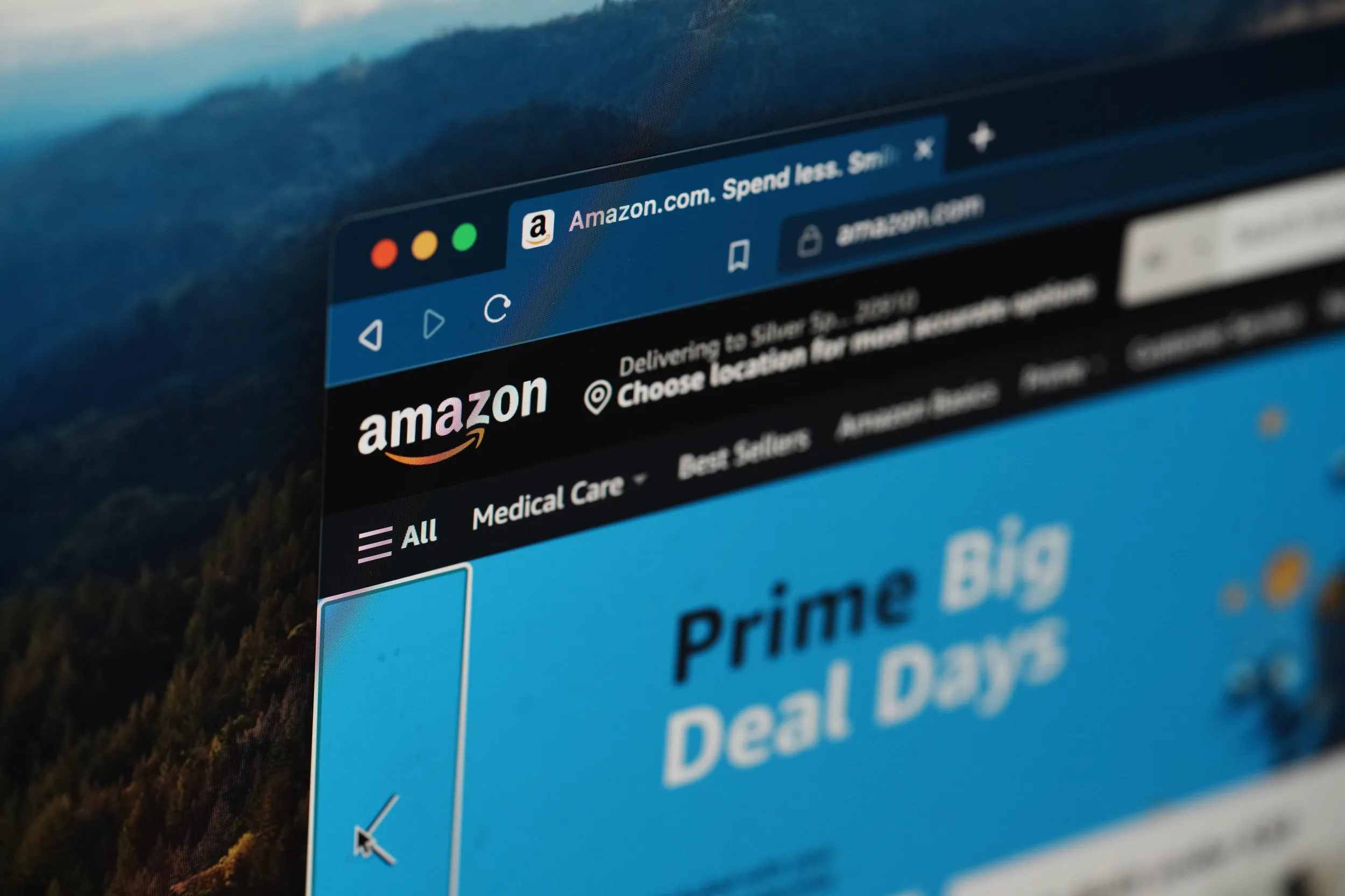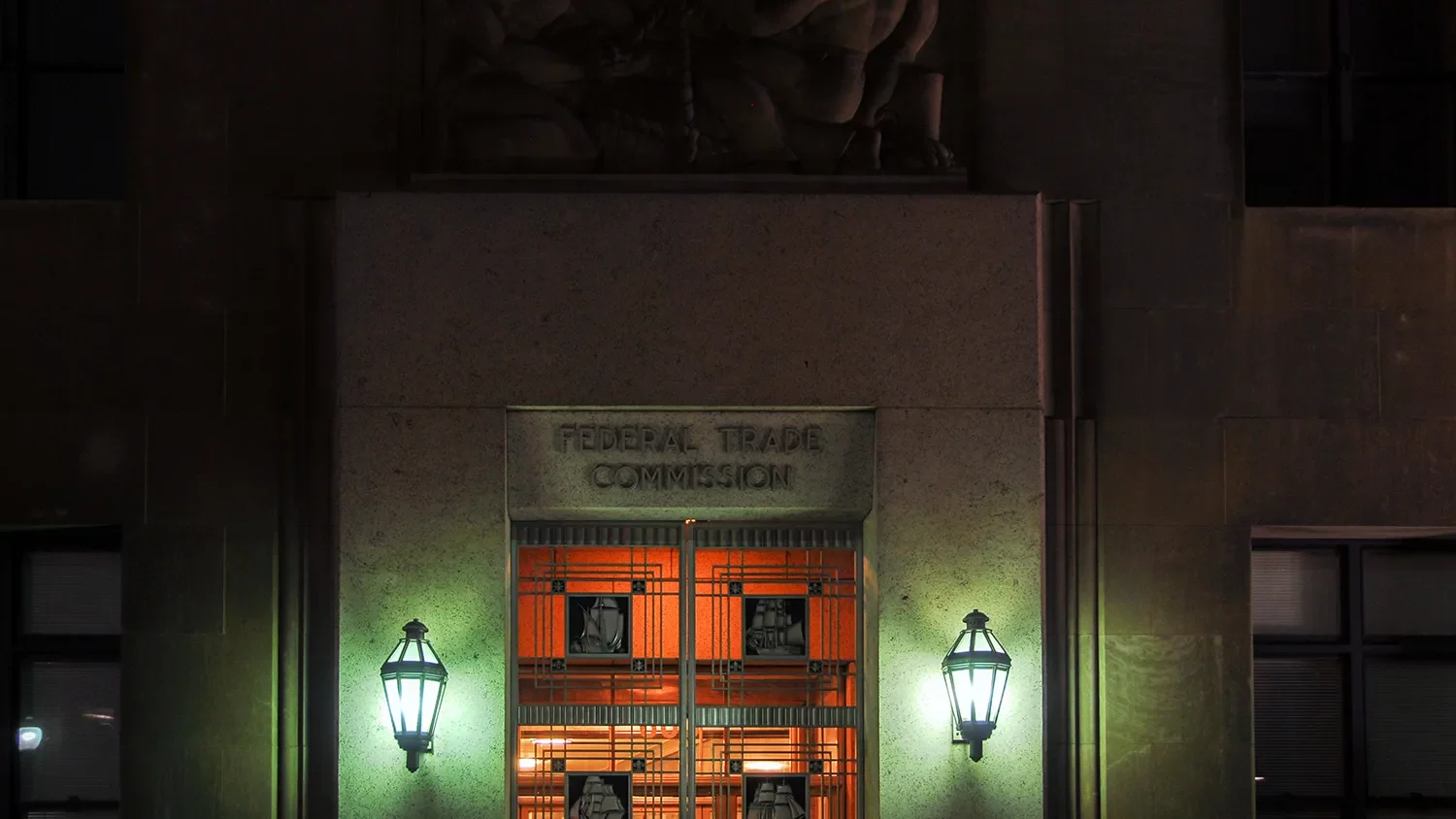FTC Hearings #11: The FTC’s Role in a Changing World
The FTC held its eleventh Hearing on Competition and Consumer Protection on March 25 and 26, 2019. The overall theme of the two-day hearing centered on the FTC’s role in a changing world.
Day 1
FTC Chairman Joseph Simons began the hearing, where he talked about the evolving digital world, with markets more interconnected and consumers more global. He then gave an overview of how the first day’s session would be structured:
“Today’s sessions will focus on the wide range of tools – statutory authority, best practices, MOUs, and international networks – that we use to accomplish our enforcement cooperation, and explore how to improve them. We will also examine the cross-border enforcement and policy issues raised by emerging technologies, such as artificial intelligence.”
William Kovacic, a Professor at the George Washington University Law School, set the tone of the hearings by noting that the FTC has been wrestling with and adjusting to new technological changes, such as the telephone and wireless, for decades. In discussing an international strategy, Professor Kovacic discussed the importance of human relationships between agencies to ensure cooperation, how the FTC could further its own goals through better disclosure of broader strategies and programs, in addition to educating foreign agencies on how the FTC functions, and how Congress could ensure a diverse talent pool at the FTC by hiring foreign employees.
Panel 1 – Building Enforcement Cooperation
Matthew Boswell, Commissioner at the Competition Bureau of Canada, kicked off the panel on building enforcement cooperation. He pointed out that the conduct the Competition Bureau of Canada investigates nowadays is not constrained by borders, and in today’s digital age, cooperation between international agencies is more important than ever. To illustrate, Boswell pointed to the USMCA as an example of that US-Canada cooperation, and the blocking of the Staples/Office Depot merger as an example of extensive sharing of data between the two agencies. Boswell, like Kovacic, also believed in the importance of the Safe Web Act, which encourages the sharing of confidential information between international enforcement agencies.
All of the panelists agreed with Boswell on the importance of international cooperation and data sharing as extremely powerful tools for greater cooperation. Jean-Francois Fortin, Executive Director of the Enforcement Autorité des Marchés Financiers, discussed the usefulness of a Multilateral Memorandum of Understanding (MMOU), as it has the potential capacity to compel physical attendance for testimony or sanction individuals.
The panel concluded with a question on some of the biggest challenges to international cooperation for enforcement. Barnett believed competition amongst agencies posed a big problem, since there seemed to be bias towards action and for authorities who are the most relevant. Chilufya Sampa, Executive Director & CEO at the Competition and Consumer Protection Commision of Zambia, thought that privacy laws were the biggest challenge, as some agencies refused to share non-confidential information. Boswell said that it was expensive to maintain relationships between individuals around the world, but that these relationships were essential to cooperation.
Panel 2 – Consumer Protection and Privacy Enforcement Cooperation
The importance of cross-border cooperation was again echoed throughout this panel. However, panelists acknowledged there were problems with international privacy enforcement. One of the problems, said Kurt Gresenz, Senior Assistant Director at the Office of International Affairs in the Securities and Exchange Commission, was the concept of regulatory arbitrage, discussed earlier as the idea that agencies want to be seen as doing something. Marie-Paule Benassi, the Acting Director for Consumers Affairs at the European Commission, believed some of the problems could be alleviated with legislation. The GDPR, she argued, has helped clarify authorities on how to exchange information, including information with personal data.
The panel closed with a question on the main challenges of consumer protection and international cooperation, and how they could possibly be remedied. James Sullivan, the Deputy Assistant Secretary for Services at the Department of Commerce, believed that agencies want to see greater collaboration that would lead to consistent best practices, as opposed to a diverse and fragmented approach. Jeffrey Thomson, Senior Intelligence Analyst at the Canadian Anti-Fraud Centre, believed that one of the biggest problems was with the increasing abundance of information in the world. To combat this, Thomson argued that agencies needed to prioritize their enforcement efforts, set the right priorities and work smarter.
Panel 3 – Competition Enforcement Cooperation
In the competition realm, Fiona Schaeffer, a Partner at Milbank, believed that cooperation does not necessarily mean coming to the same conclusions or taking the same actions, but having consistent outcomes. It also did not mean every jurisdiction needed to be reviewing the same transaction. Jeannie Pratt, Senior Deputy Commissioner at the Competition Bureau of Canada, elaborated further that cooperation is more than about sharing information — it’s about having the trust amongst the agencies to have productive discussion and exchange theories of harm.
One of the questions posed was what tools practitioners used, or wished they had. Marcus Bezzi, Executive General Manager of the Australian Competition and Consumer Commission, discussed how most of the tools used were informal, and how having a more formal framework would facilitate the informal aspects of cooperation. Pratt discussed the usefulness of doing joint workshops. Nicholas Banasevic, Head of Unit in DG Competition of the European Commission, talked about the EU Competition Network as a tool, and how cooperation “starts at home.” Lastly, Schaeffer talked about the limited resources of agencies, and how due to these limited resources agencies need to carefully consider reviewing the same conduct when other agencies are already doing so.
Panel 4 – International Engagement and Emerging Technologies: Artificial Intelligence Case Study
The last panel of the day focused on artificial intelligence (AI) and international engagement. Julie Brill, former FTC Commissioner and Corporate Vice President and Deputy General Counsel for Global Privacy and Regulatory Affairs at Microsoft, gave a presentation on the growing prevalence and significance of AI, the importance of cloud computing used to collect and analyze data, and building consumer trust. Brill then outlined Microsoft’s six AI principles, in addition to their privacy framework. She also called on the US government to regulate facial recognition.
James Dipple-Johnstone, Deputy Commissioner of the Information Commissioner’s Office in the UK, discussed some real applications of AI, including using AI to determine whether citizens are likely to commit crimes or pay rent on time. These applications have already instigated discussions on issues of fairness and transparency, and Dipple-Johnstone noted that was why the UK was keen to be abreast of developments in emerging technologies. Omer Tene, Vice President at the International Association of Privacy Professionals, proposed that we also needed to consider AI under ethical principles, and not just the law.
While agencies may be keenly watching developments in AI, some panelists pointed out the difficulties in obtaining a regulatory consensus. Marcela Mattiuzzo, of VMCA Advogados in Brazil, talked about the priorities of different fields, which may sometimes be contradictory and therefore discourage convergence. To illustrate, Mattiuzzo argued that from an antitrust point of view, one solution to unilateral abuse would be to share databases so companies would have a more level playing field, but from a consumer protection point of view, consumers don’t want their data shared across many companies. Isabella de Silva, President of Autorité de la Concurrence in France, suggested setting up joint programs to help agencies interact better in these interdisciplinary fields.
Day 2
The FTC held its 11th Hearing on Competition and Consumer Protection on March 25 and 26, 2019. The overall theme of the two-day hearing centered on the FTC’s role in a changing world.
The second day began with Introductory Remarks by FTC Commissioner Noah Joshua Phillips. Phillips highlighted three key issues for the FTC on the international front. First, because technology allows activity to transcend borders, unlawful activity spreads more easily. One of the ways to combat this harm is through renewal of the Safe Web Act and to increase work with international partners through multilateral institutions and direct partnerships. Second, privacy and international data flows can only work through interoperability; Phillips therefore called for further work on the EU-US Privacy Shield, and remaining engaged in the international privacy debate. Lastly, on the competition side, Phillips noted that it is common to see more than one competition enforcer analyzing similar mergers or behavior but believes that enforcers would work well to share information and best practices.
Panel 1 – Implications of Different Legal Traditions and Regimes for International Cooperation
Roger Alford, Deputy Assistant Attorney General at the Department of Justice, spoke about jurisdictional differences between civil and common law countries. One significant difference was in an agency’s standard of review. In the US, a common law country, courts review an agency’s decision de novo. In contrast, the EU is a civil law country, and courts will only conduct a marginal review, while giving deference to economic assessments.
Panelists then began to identify significant systematic and institutional differences that may affect enforcement and policy development. Christoper Yoo, Professor of Law, Communication, and Computer & Information Science at the University of Pennsylvania, argued that the difference in legal education results in a different antitrust thinking. The US is the only country where students must complete undergraduate degrees before studying law. Professor Yoo argued that these broadened educational experiences included the economic reasoning that has become the “bread and butter” of antitrust reasoning in the US. In contrast, in other jurisdictions, many judges enter the profession having never tried a case.
Philip Marsden, Visiting Professor at the College of Europe, believed that a significant systematic difference stems from two antitrust campaigns: the “leave campaign” and the “stay campaign”. Leavers argue for more intervention and structural remedies such as break-ups and price caps, while those who want to “stay” don’t want antitrust laws to change. Marsden suggests that both campaigns may be wrong, and that “clearly we shouldn’t be either Chicken Little predicting the sky is falling or ostriches burying their heads in the ground.”
Angela Zhang, Senior Lecturer in Competition Law and Trade at King’s College London, talked about different legal traditions and influences. In the EU, for example, Zheng argued that if a judge came from a country whose administrative model was heavily influenced by the French model the resulting decision would more likely favor the European Commission. Another case study is China, where China’s default rule for government agencies is to regularly confer with other agencies who take an interest in the merger case, which often results in a longer merger process.
Panel 2 – Promoting Sound Policies for the Next Decade
Beginning the second panel, FTC Commissioner Christine Wilson discussed the growing international debate on whether and how to revise the antitrust laws as they apply to the digital economy. Wilson explained that the potential impact of changes in antitrust law is enormous, and why critically thinking about these issues with international agencies is crucial:
“The antitrust rules we adopt in the United States may have repercussions abroad, and antitrust rules adopted by other jurisdictions may affect us here in the United States. Comparing notes with our international partners generates at least two benefits. First, it helps each agency, including the FTC, sharpen its own analysis. Second, it helps us identify areas for collaboration and, if appropriate, convergence.”
The idea of soft law was promoted during this panel. Teresa Moreira, Head of Competition and Consumer Protection at the United Nations Conference on Trade and Development, detailed some of the benefits of soft law in promoting proper competition policies, and argued it could be effective in pushing towards a certain direction. John Pecman, Senior Business Advisor at Fasken, and Justin MacMullan, Advocacy Director at Consumers International, also showed their support for the development of international soft law.
Abbott “Tad” Lipsky, Adjunct Professor at the George Mason University Antonin Scalia Law School, argued that the most successful competition policies have been born from a bilateral agreement between the US and a small number of jurisdictions that are strategically friendly to the US and its commitment to an economics-based approach. However, Pablo Trevisan, Commissioner at the National Commission for the Defense of Competition, Argentina, pointed out that legislation alone is not enough — strong enforcement, transparency, and coherent policy for its application are essential.
Daniel Solove, Professor at the George Washington University Law School, argued that any international efforts to promote the US standard of privacy must rest on the US taking a leadership role, as GDPR is becoming the global standard. Solove concluded by encouraging the US to bring to the table its voice and promote its approach to address issues that the GDPR does not.
Panel 3 – Effective International Engagement: Foreign Agency Perspectives
Panelists were asked to share what they believed were key strategies for success in international engagement. Paula Farani de Azevedo Silveira, Commissioner of the Administrative Council for Economic Defense in Brazil, and Babatunde Irukera, Director General of the Consumer Protection Council of Nigeria, both stated that MOUs were extremely useful as tools. Han Li Toh, the Chief Commissioner at the Competition and Consumer Commission of Singapore, agreed with the previous panelists on MOUs, and added that Regional Free Trade Agreements were also incredibly useful. Chris Warner, Legal Director at the Competition and Markets Authority, suggested looking inwards as well as looking outwards to find touch points for national agencies to work together.
Panelists then moved on to discuss what they believed hasn’t worked well for agencies or has even hampered international engagement. Irukera and Stephen Wong, Hong Kong’s Privacy Commissioner in the Office of Personal Data, were in agreement that data protection often inhibits information sharing that can be extremely useful for an agency to do its work. Toh raised the concern of domestic political considerations overshadowing some of regional considerations as a barrier to cooperation.
Panel 4 – The FTC’s Role in a Changing World
James Rill, Senior Counsel at Baker Botts, kicked off the final panel of the hearing with a short review of what the FTC has done in the past and made suggestions on how to proceed forward, including: a) continuing to promote sound principles based on the consumer welfare standard (CWS); b) beginning to focus on more than economic goals alone; c) continuing to provide workshops and roundtables; and d) cooperating more with other non-antitrust agencies of government.
Bojana Bellamy, President of the Centre for Information Policy Leadership, discussed how regulators needed to step up and consider issues such as action versus inaction, transparency, engagement, and thought leadership. She also stated that constructive engagement and innovative thinking should be favored over enforcement. Bellamy believed companies can play an important role in shaping privacy through their own standards, but that the FTC should help promote certain private sector efforts.
Eduardo Perez Motta, Founding Partner, Agon Economics Law and Strategy, argued that an agency must work with agencies often outside the normal focus of competition and consumer protection that nonetheless deal with lots of data. Motta also discussed the possibility of creating a more formal international organization focusing on competition and consumer protection to aid in the growing antitrust issues. Rod Sims, Chairman of the Australian Competition and Consumer Commission, agreed with Motta’s points on a well designed agency and further highlighted some areas of improvement, such as better information sharing and the development of more antitrust treaties.
Terry Calvani, Of Counsel, Freshfields Bruckhaus Deringer LLP, was in disagreement with other panelists on the idea of the FTC as a regulatory agency. He argued that the FTC is not and should not be a regulator, as this change impacts the ways an agency behaves and ought to behave. He agreed with Bellamy that the private sector has a role to play but stated its role should be no more than helping the agencies.
The twelfth set of FTC hearings, on the FTC’s approach to consumer privacy, will take place on April 9-10, 2019 at the Constitution Center. DisCo is covering these hearings as a series and our previous recaps can be found here.








